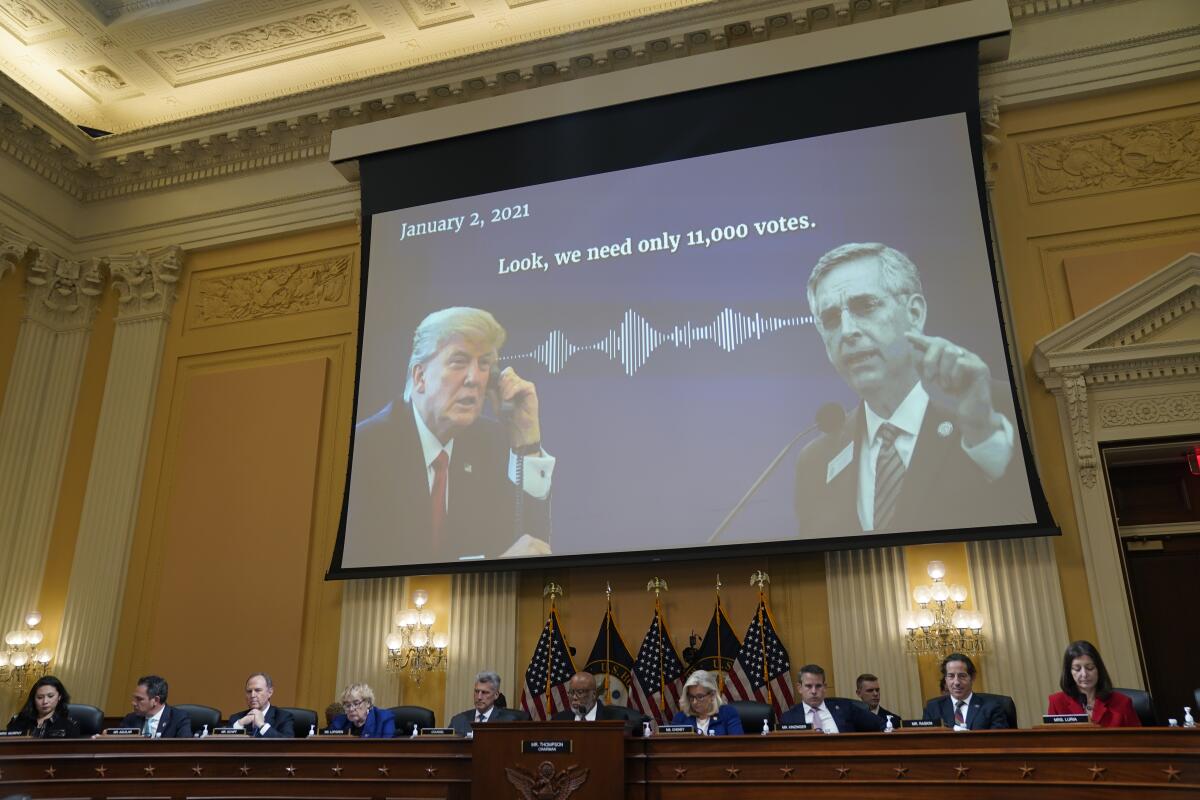Letters to the Editor: Trump’s ‘perfect call’ to Georgia was wrong. But it doesn’t mean he’s a criminal

- Share via
To the editor: Thank God that someone has the guts to concede that not everything one’s adversary does is criminal.
Columnist Nicholas Goldberg correctly explains that the audiotape of then-President Trump asking Georgia Secretary of State Brad Raffensperger to “find” 11,780 votes on Jan. 2, 2021, may not be the smoking gun many media outlets have claimed it to be, so long as he genuinely believed that improprieties existed that needed to be corrected.
I’ve listened to the entire conversation, and in context, Trump seemed to be asking Raffensperger, given the massive and pervasive fraud that existed in his mind, to simply make a finding that would invalidate at least 11,780 votes for Joe Biden.
What’s telling is that, despite Goldberg’s repeated proclamations that Trump’s beliefs were utterly without merit (and my echoing that sentiment), there will probably be many readers who claim that he is buying into, if not helping to advance, the big lie.
Joel Elkins, West Hollywood
..
To the editor: Based on the rather far-fetched conclusion reached by Goldberg that Trump’s actual words don’t suggest “he was intentionally soliciting Raffensperger to commit election fraud,” it is apparent that Goldberg does not understand the concept of “beyond a reasonable doubt” as it applies to criminal law in this country.
No doubt Trump’s lawyers would argue to a jury that their client truly believed he had won the election in Georgia. But would such an argument present a reasonable doubt that Trump in fact had a corrupt intent when he telephoned Raffensberger to coerce just enough votes to change the election result?
No, because although it is possible to assume that Trump truly believed there were 11,780 votes that had been incorrectly tallied for his opponent, it is not a reasonable conclusion to draw from his words and actions.
There is simply no reasonable doubt that Trump attempted to enlist Raffensberger’s assistance to overturn the legitimate result of the vote in Georgia.
Marcia Goodman, Long Beach
..
To the editor: Goldberg makes the argument that it would be difficult for a jury to convict Trump in the Georgia case because the former president pretended that he really thought he had been cheated.
Trump had been informed many times that he lost. It’s just not credible that he truly believed he’d been cheated.
For me, one of the most damning things said was when he tried to go “old boys network” on the call: “Fellas, I need 11,000 votes. Give me a break.”
For all those pretending that they really believe Trump was cheated, I say give me a break.
Bill Say, Simi Valley








